Ninghao Pu
Arrhythmia Classifier Based on Ultra-Lightweight Binary Neural Network
Apr 04, 2023Abstract:Reasonably and effectively monitoring arrhythmias through ECG signals has significant implications for human health. With the development of deep learning, numerous ECG classification algorithms based on deep learning have emerged. However, most existing algorithms trade off high accuracy for complex models, resulting in high storage usage and power consumption. This also inevitably increases the difficulty of implementation on wearable Artificial Intelligence-of-Things (AIoT) devices with limited resources. In this study, we proposed a universally applicable ultra-lightweight binary neural network(BNN) that is capable of 5-class and 17-class arrhythmia classification based on ECG signals. Our BNN achieves 96.90% (full precision 97.09%) and 97.50% (full precision 98.00%) accuracy for 5-class and 17-class classification, respectively, with state-of-the-art storage usage (3.76 KB and 4.45 KB). Compared to other binarization works, our approach excels in supporting two multi-classification modes while achieving the smallest known storage space. Moreover, our model achieves optimal accuracy in 17-class classification and boasts an elegantly simple network architecture. The algorithm we use is optimized specifically for hardware implementation. Our research showcases the potential of lightweight deep learning models in the healthcare industry, specifically in wearable medical devices, which hold great promise for improving patient outcomes and quality of life. Code is available on: https://github.com/xpww/ECG_BNN_Net
Arrhythmia Classifier using Binarized Convolutional Neural Network for Resource-Constrained Devices
May 13, 2022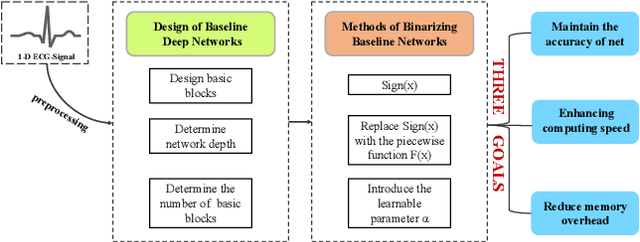
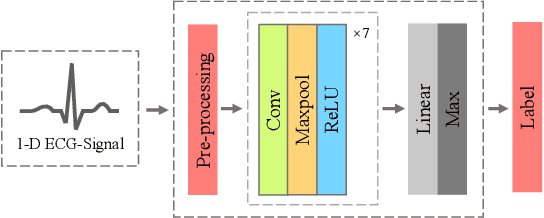
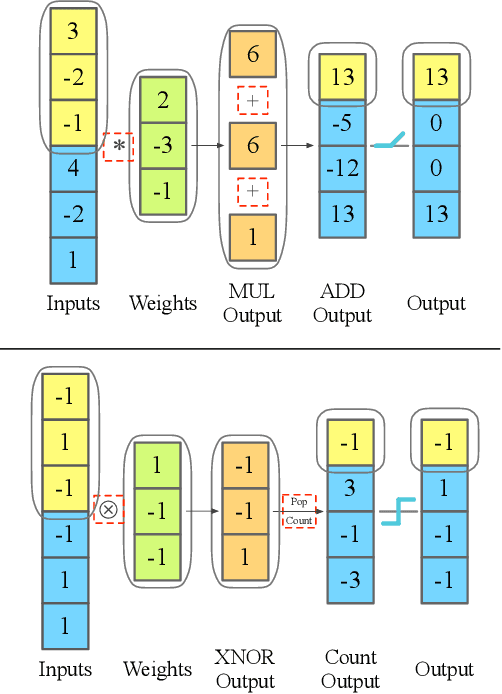
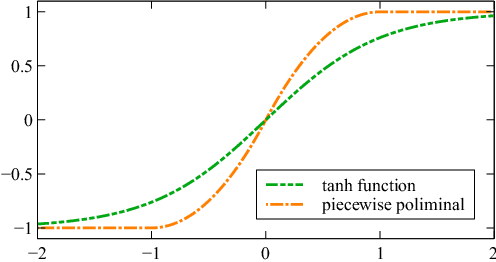
Abstract:Monitoring electrocardiogram signals is of great significance for the diagnosis of arrhythmias. In recent years, deep learning and convolutional neural networks have been widely used in the classification of cardiac arrhythmias. However, the existing neural network applied to ECG signal detection usually requires a lot of computing resources, which is not friendlyF to resource-constrained equipment, and it is difficult to realize real-time monitoring. In this paper, a binarized convolutional neural network suitable for ECG monitoring is proposed, which is hardware-friendly and more suitable for use in resource-constrained wearable devices. Targeting the MIT-BIH arrhythmia database, the classifier based on this network reached an accuracy of 95.67% in the five-class test. Compared with the proposed baseline full-precision network with an accuracy of 96.45%, it is only 0.78% lower. Importantly, it achieves 12.65 times the computing speedup, 24.8 times the storage compression ratio, and only requires a quarter of the memory overhead.
Arrhythmia Classifier Using Convolutional Neural Network with Adaptive Loss-aware Multi-bit Networks Quantization
Feb 27, 2022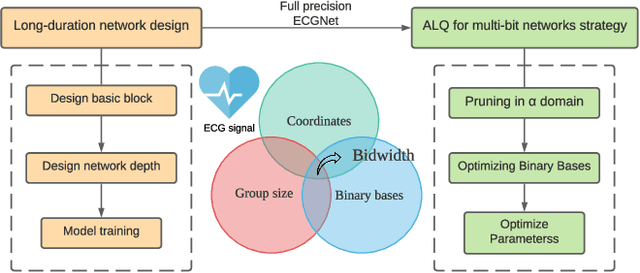
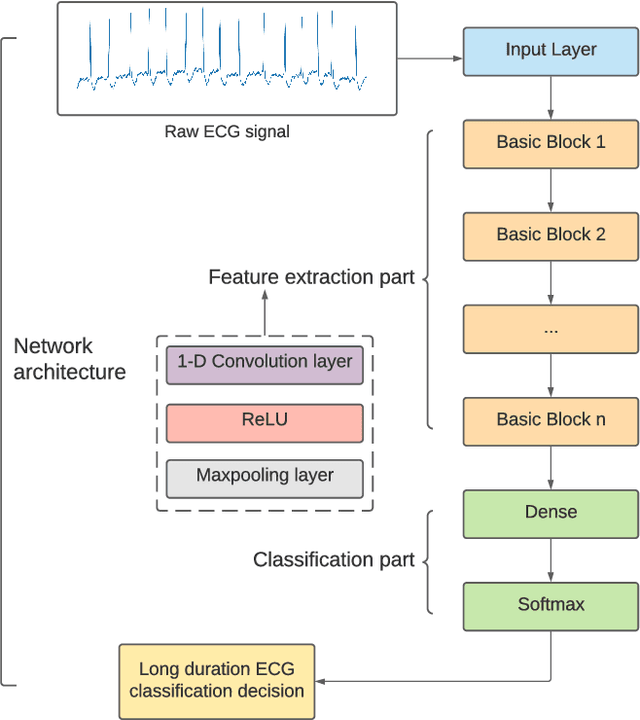
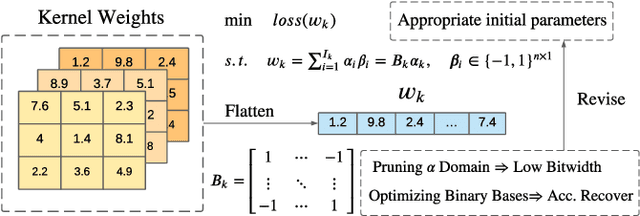
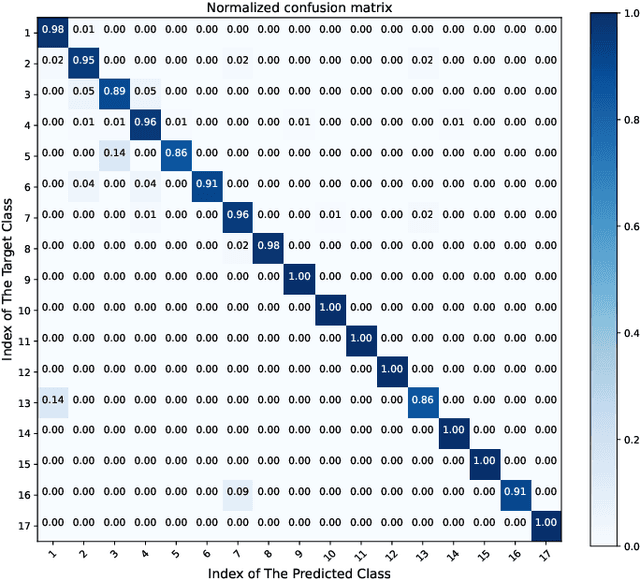
Abstract:Cardiovascular disease (CVDs) is one of the universal deadly diseases, and the detection of it in the early stage is a challenging task to tackle. Recently, deep learning and convolutional neural networks have been employed widely for the classification of objects. Moreover, it is promising that lots of networks can be deployed on wearable devices. An increasing number of methods can be used to realize ECG signal classification for the sake of arrhythmia detection. However, the existing neural networks proposed for arrhythmia detection are not hardware-friendly enough due to a remarkable quantity of parameters resulting in memory and power consumption. In this paper, we present a 1-D adaptive loss-aware quantization, achieving a high compression rate that reduces memory consumption by 23.36 times. In order to adapt to our compression method, we need a smaller and simpler network. We propose a 17 layer end-to-end neural network classifier to classify 17 different rhythm classes trained on the MIT-BIH dataset, realizing a classification accuracy of 93.5%, which is higher than most existing methods. Due to the adaptive bitwidth method making important layers get more attention and offered a chance to prune useless parameters, the proposed quantization method avoids accuracy degradation. It even improves the accuracy rate, which is 95.84%, 2.34% higher than before. Our study achieves a 1-D convolutional neural network with high performance and low resources consumption, which is hardware-friendly and illustrates the possibility of deployment on wearable devices to realize a real-time arrhythmia diagnosis.
 Add to Chrome
Add to Chrome Add to Firefox
Add to Firefox Add to Edge
Add to Edge